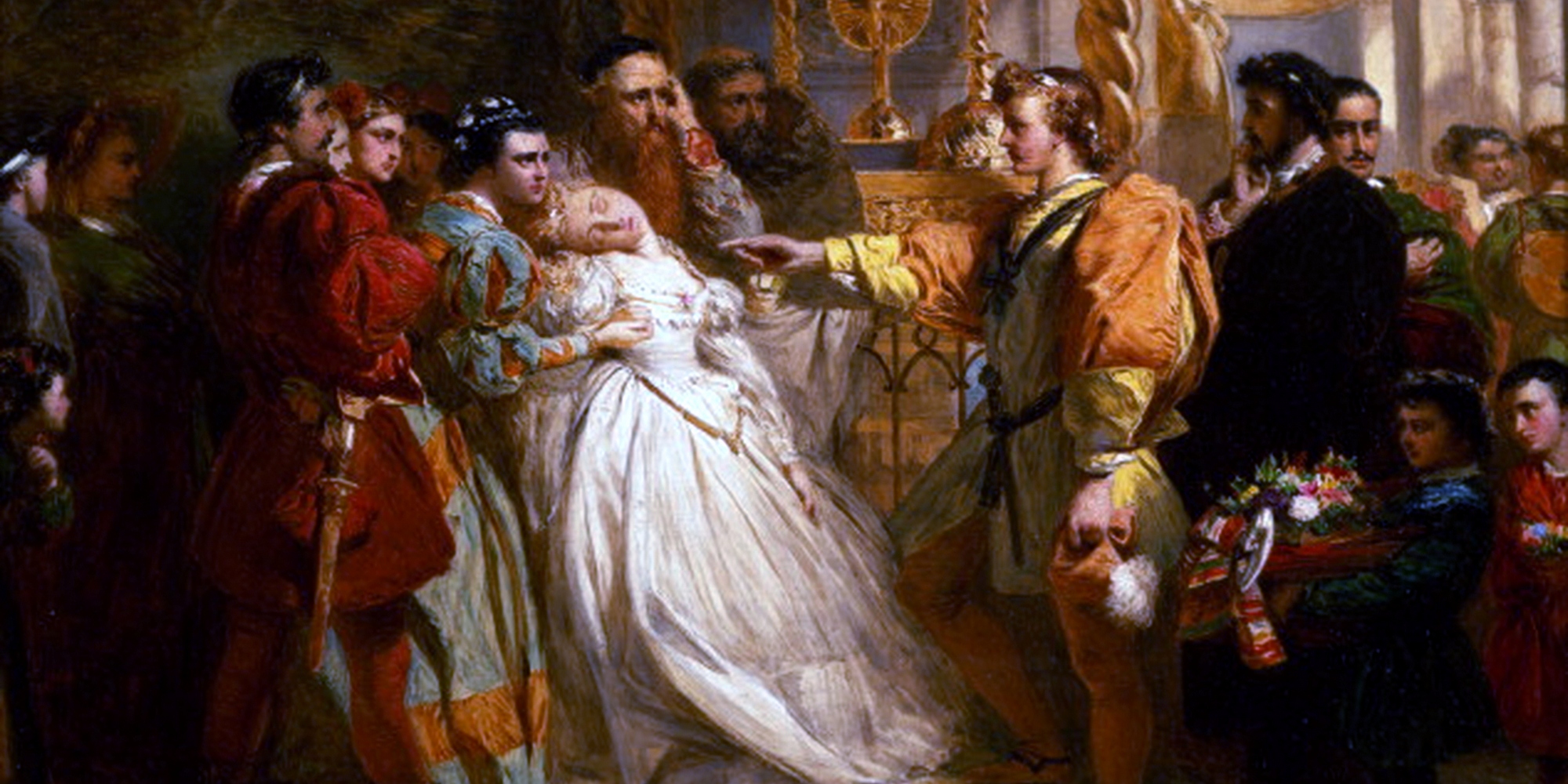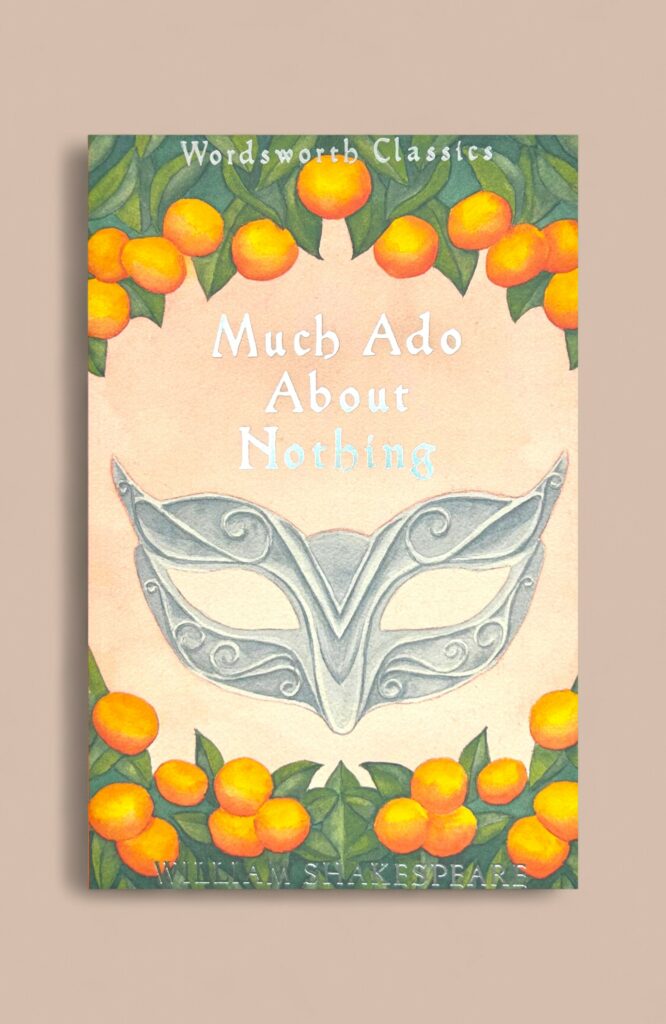
Cedric Watts looks at Shakespeare’s Much Ado About Nothing
Cedric Watts restores a lost character to Shakespeare’s most often performed comedy.
Should we save Innogen, the mother of Hero in Much Ado About Nothing? For centuries, editors have answered that question with a ruthless ‘No’. I say ‘Yes’, and, when editing the play for Wordsworth, I restored her to the play. (People who buy other editions may well be buying incomplete texts.) The main puzzle is: why was she ever suppressed? This is not a trivial matter. You’ll soon see that it has big implications for editors, directors and theatre-goers.
Everyone knows about Imogen, who has an important role in Cymbeline, and whose name should be ‘Innogen’, according to some scholars. But hardly anyone has heard of Innogen in Much Ado About Nothing. She is the wife of Leonato and the mother of Hero, and she’s supposed to appear in at least two scenes. Nevertheless, for centuries, editors – they always seem to be male editors – have excised her: they’ve killed the unfortunate woman! You won’t find her in such standard editions of the Complete Works as Peter Alexander’s, or the Riverside, or the Norton, or the Wells and Taylor volume for Oxford. A. R. Humphreys’ Arden edition of the play excludes her, and so do the editions by David Stevenson (Signet), Sheldon P. Zitner (Oxford), and John F. Cox (Cambridge). And the list could be extended for many lines. It looks like the perfect crime: nobody can be found.
What makes this habitual exclusion so strange is that Innogen is clearly specified in the earliest texts from which all subsequent texts derive. They are the First Quarto and the First Folio. In the First Quarto (Q1), the stage direction for the opening of Act 1, scene 1, says: ‘Enter Leonato governor of Messina, Innogen his wife, Hero his daughter, and Beatrice his niece, with a messenger.’ In the First Folio (F1) the stage direction is almost identical, again specifying ‘Innogen his wife’. At the opening of Act 2, in both Q1 and F1, the entry of Innogen is yet again specified: ‘Leonato, his brother, his wife…’.
So why do editors delete her? One reason is that she does not say anything. Various editors, therefore, believe that although Shakespeare introduced her with the intention of giving her a speaking rôle, he found no use for her. Therefore, these editors presume, they are helping Shakespeare by doing what he should have done: they are tidying the text (and perhaps reducing the wage bill) by removing a redundant character. They think they know better than Heminge and Condell, Shakespeare’s colleagues, who prepared the First Folio, who must have seen how the play worked in the theatre, and who retained Innogen.
What these male editors fail to see is a glaring irony. Much Ado About Nothing is a bitter-sweet comedy which strikingly displays the operations of male chauvinism. It shows that women may be treated as adjuncts to the men, to be variously used, abused, manipulated, slandered, discredited or marginalised. By their ruthless dispatch of Innogen, the male editors emulate the cruelty of Claudio. He, totally misled, denounces his fiancée at the altar, so that she, instead of joining him in holy wedlock, is proclaimed a whore, swoons away, and is left by him for dead. When Claudio realises his error, he is (to make amends) quite willing to accept from Leonato a bride – supposedly Leonato’s niece – whom, he believes, he has never met! Meanwhile, Beatrice, who has displayed plenty of independent spirit in her bouts of wit with Benedick, eventually agrees to marry him: but will her independence survive years of marriage and, presumably, motherhood?
Part of the answer is provided by the silence of Innogen. In an ironic master-stroke, Shakespeare has, from the very start of the play, established that in this male-dominated world, a wife and mother may be a mute witnesses of events; a person ignored, not consulted; a person whose later absence from the action expresses eloquently the ways in which some women may be utterly marginalised. She, bearing a name which seems to mean ‘innocent from birth’, is an appropriately passive mother to the much-manipulated and much-demeaned Hero. In Act 1, scene 1, when Don Pedro says to Leonato, about Hero, ‘I think this is your daughter’, Leonato replies: ‘Her mother hath many times told me so.’ This proves that Shakespeare regards this mother as a continuing presence, for Leonato says ‘hath…told’, not ‘told’. What’s more, if she is on stage, as the directions specify, we may imagine her expression (perhaps good-humoured, resigned, or disgusted) as she hears that ironic exchange of dialogue and its bawdy continuation. That continuation jocularly implies that if Benedick had been older, he might well have copulated with Innogen, thus casting subsequent doubt on Hero’s legitimacy. ‘Were you in doubt, sir, that you asked her?’, enquires Benedick; and Leonato coarsely responds: ‘Signor Benedick, no, for then you were a child.’
By erasing Innogen from Much Ado About Nothing, the male editors of the work have both weakened it and verified it. They have weakened the play by removing a telling example of the subordinated female, but they have verified it unwittingly by extending into the real world the play’s thematic concern with the ruthless manipulation of women by men.
When I had the opportunity to edit Much Ado about Nothing, I, therefore, took great pleasure in restoring Innogen to the text. Just as the apparently dead Hero is eventually resurrected in the play, the silent Innogen (her long-suffering mother) has been deliberately resurrected for this edition. ‘The empty vessel makes the greatest sound’, says the intelligent Boy in Henry V, and, conversely, good acting can accord a character’s silence the most eloquent expressiveness. Still, waters run deep. I’ve never forgotten Vivien Leigh’s poignant performance as the tongueless Lavinia in Peter Brook’s Titus Andronicus at Stratford-upon-Avon in 1955. Her eyes, gestures and postures silently uttered resounding eloquence.
An obvious conclusion follows. I say to Shakespeare’s editors: ‘Let’s bring back to the light of day not only Innogen but all the rest of the editorially-buried humanity in Shakespeare. Believe me, there’s plenty of it!’
Books associated with this article
